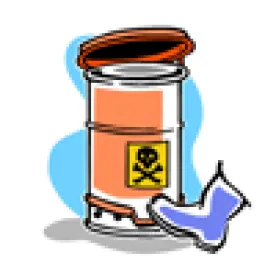The New York State Department of Environmental Conservation (NYSDEC) issued revised regulations, effective October 11, 2015, governing the management and bulk storage of petroleum and hazardous substances. Corresponding revisions to used oil management regulations will be effective on November 10, 2015, and operator training requirements must be implemented by October 11, 2016
Petroleum Bulk Storage and Used Oil. Prior to these revisions, NYSDEC’s Petroleum Bulk Storage (PBS) regulations were distributed across three different regulatory parts. They did not include changes made in 2008 to New York’s Environmental Conservation Law and did not correspond to federal regulations at 40 C.F.R. Part 280 governing underground storage tanks (USTs).
The revised PBS regulations are assembled in one part (6 N.Y.C.R.R. Part 613), and clarify requirements pertaining to state- and federally-regulated USTs and above-ground storage tanks (ASTs). The new regulations include new or more detailed requirements relating to:
-
Reporting and investigation of known or suspected releases;
-
Operator training (for UST systems subject to the federal Part 280 regulations);
-
The prohibition of deliveries of petroleum to leaking or apparently leaking tanks;
-
Release response and corrective actions; and
-
Standards for tank systems storing used oil.
The new regulations also amended 6 N.Y.C.R.R. Subpart 374-2, which, with existing regulations at Part 360-14, govern the management of used oil.
The former PBS regulations applied to USTs and ASTs with a combined storage capacity of more than 1,100 gallons. However, the revised regulations are now consistent with the federal Part 280 UST regulations and the ECL, so they also govern certain USTs with a capacity of more than 110 gallons. Tanks not regulated under the PBS program include temporary tanks, “operational” tanks (e.g., hydraulic fluid tanks), and certain tanks for heating oil and motor fuel.
Local Implementation of PBS Rules. Several counties in New York have implemented the PBS program under local law. If those counties wish to continue to implement the PBS program, the counties must apply by April 8, 2016 for NYSDEC’s approval of a local law that is at least as stringent as the State’s program. Other counties or New York City may also apply to enact and implement a new local PBS program.
Chemical Bulk Storage. NYSDEC also revised the Chemical Bulk Storage (CBS) program, which regulates the bulk storage of hazardous substances. The revised regulations consolidate the CBS regulations in fewer Parts and include new or more detailed requirements relating to:
-
Prohibition of releases of hazardous substances;
-
Requirements to remediate releases;
-
Reporting requirement for releases of reportable quantities of regulated substances within any 24-hour period;
-
Updated list of regulated hazardous substances (adding 19 and deleting four substances), to be consistent with the federal list at 40 C.F.R. Part 302;
-
Operator training requirements;
-
Prohibition on delivery of chemicals to tank systems with known or suspected leaks, or tank systems lacking certain equipment or protections; and
-
Public notice to people directly affected by a release or a planned corrective action and a potential public meeting in cases of sufficient public interest.
Operator Training Guidance. On October 28, 2015, NYSDEC issued a new program policy, DER-40, that provides guidance for training and testing of operators of PBS facilities governed by both NYSDEC and federal rules, and for operators of all NYSDEC-regulated CBS facilities. Facilities subject to the operator training requirements must ensure that operators are designated and authorized by October 11, 2016.






 />i
/>i
